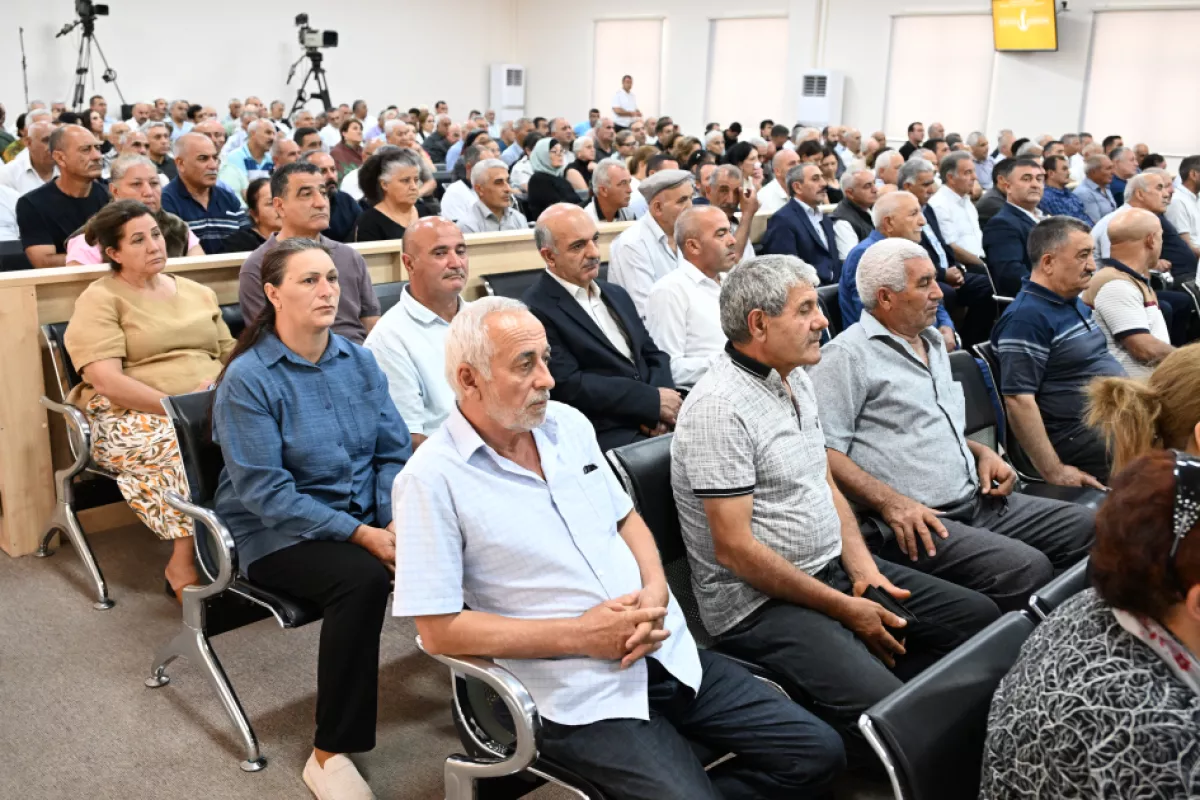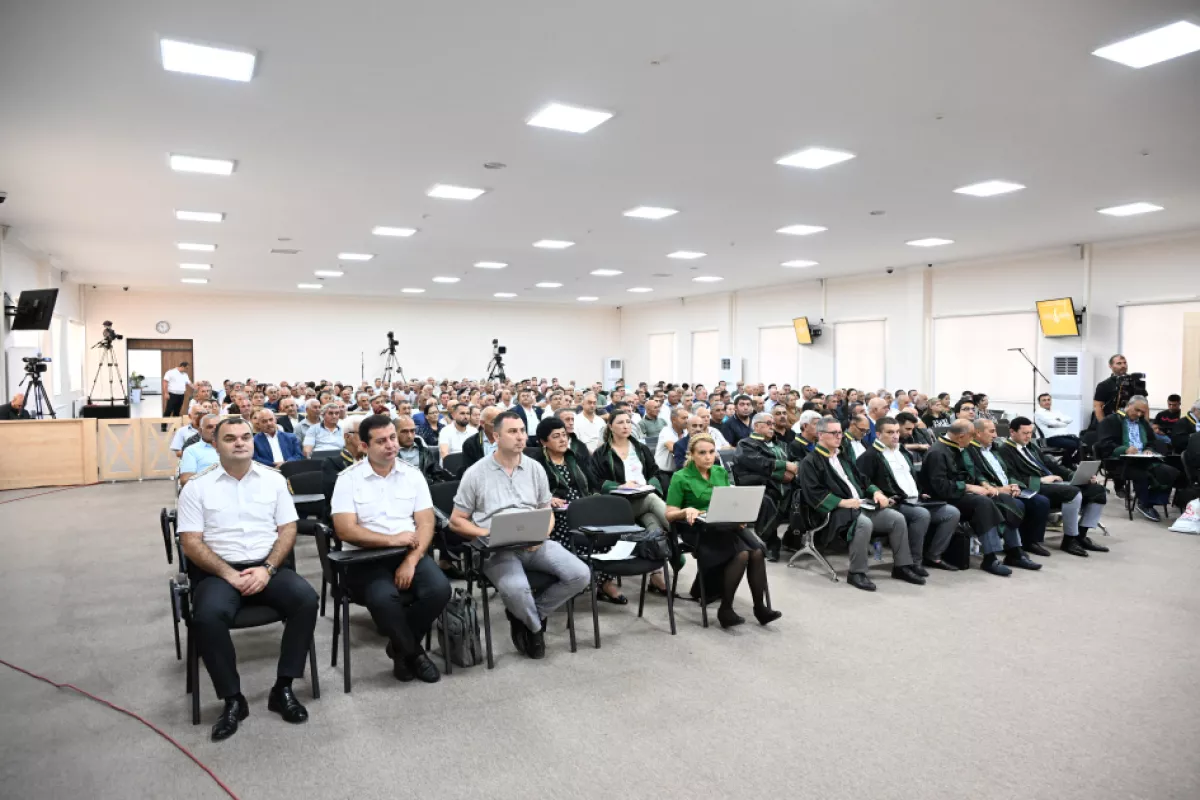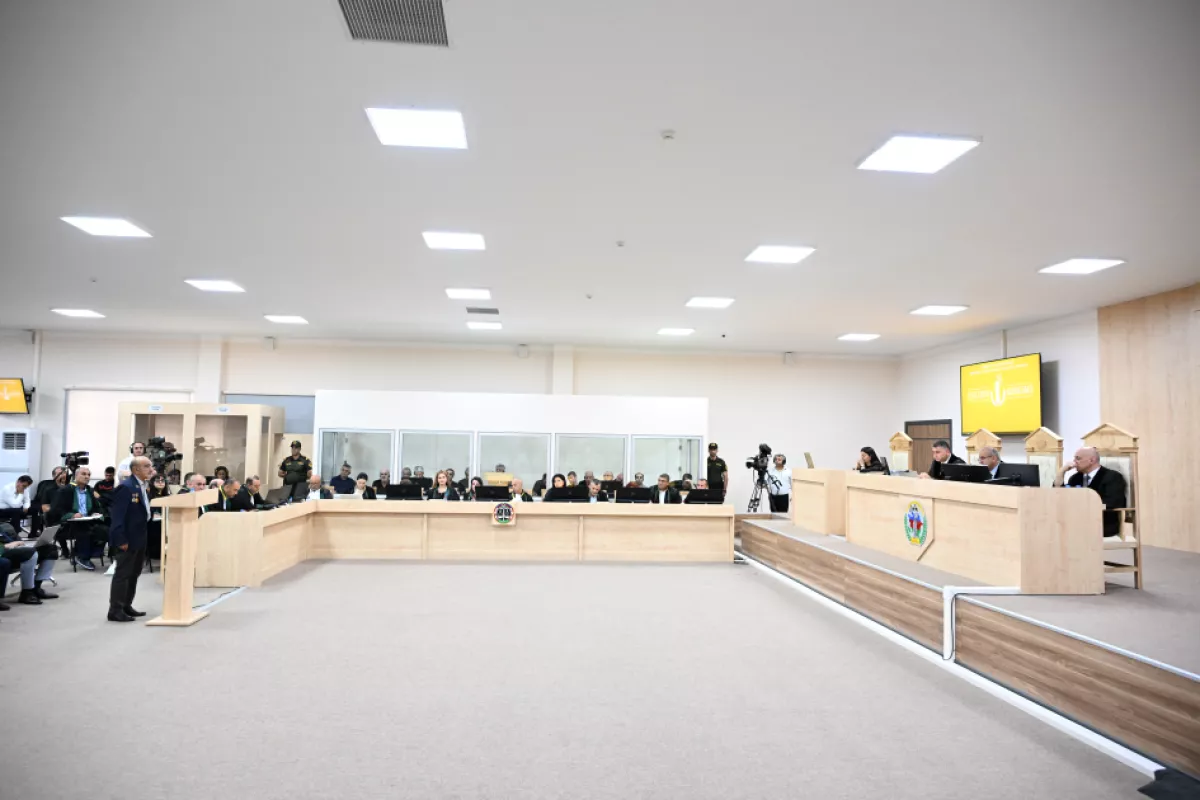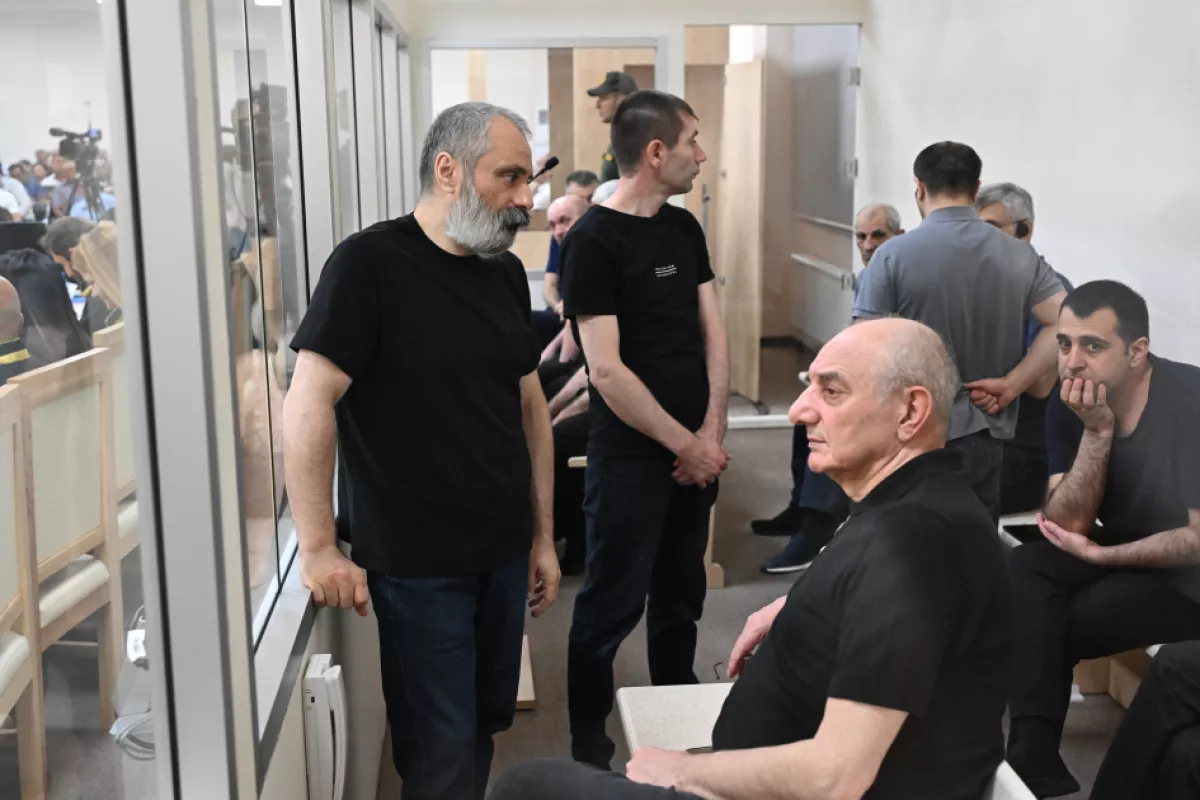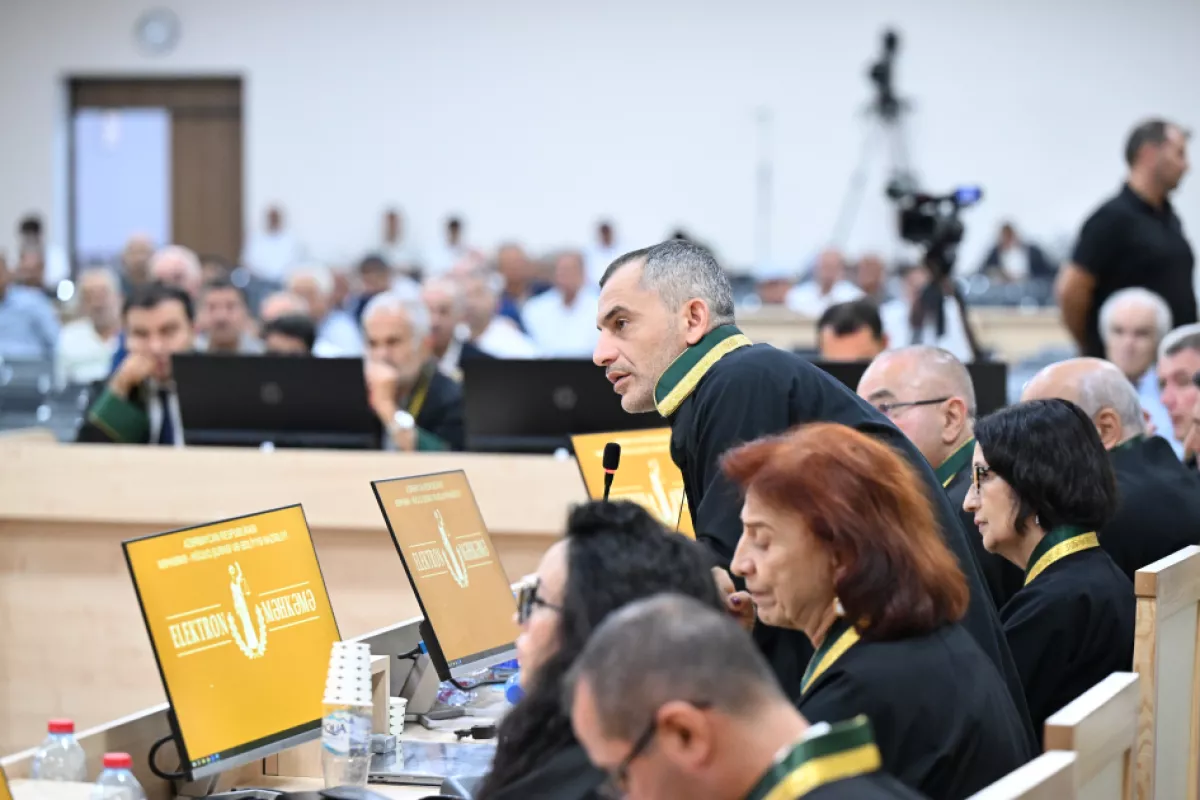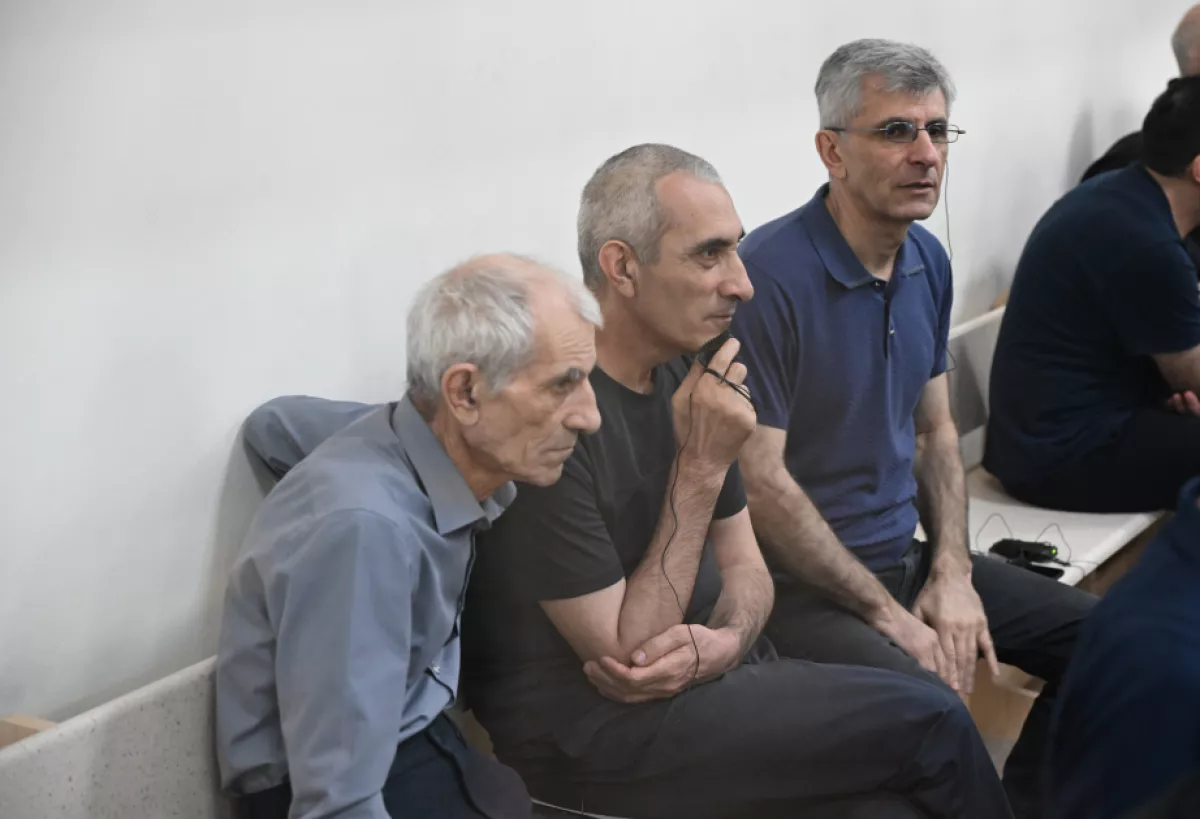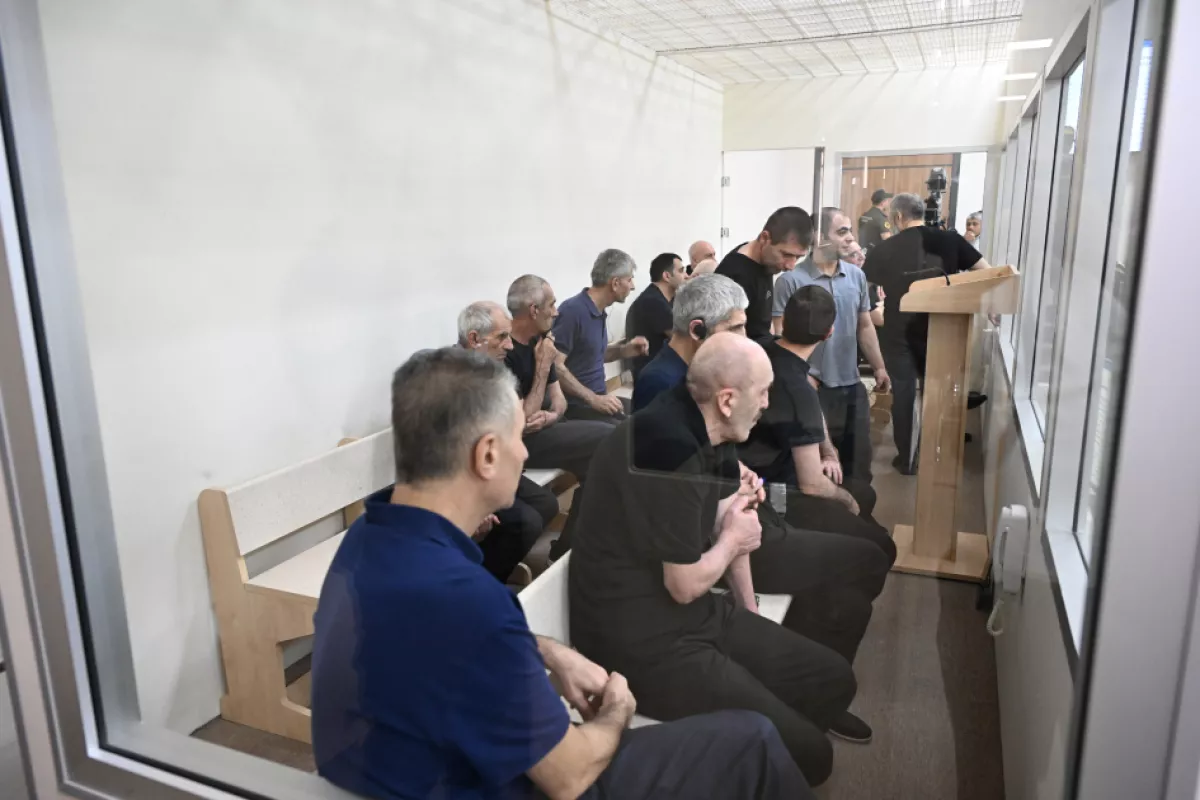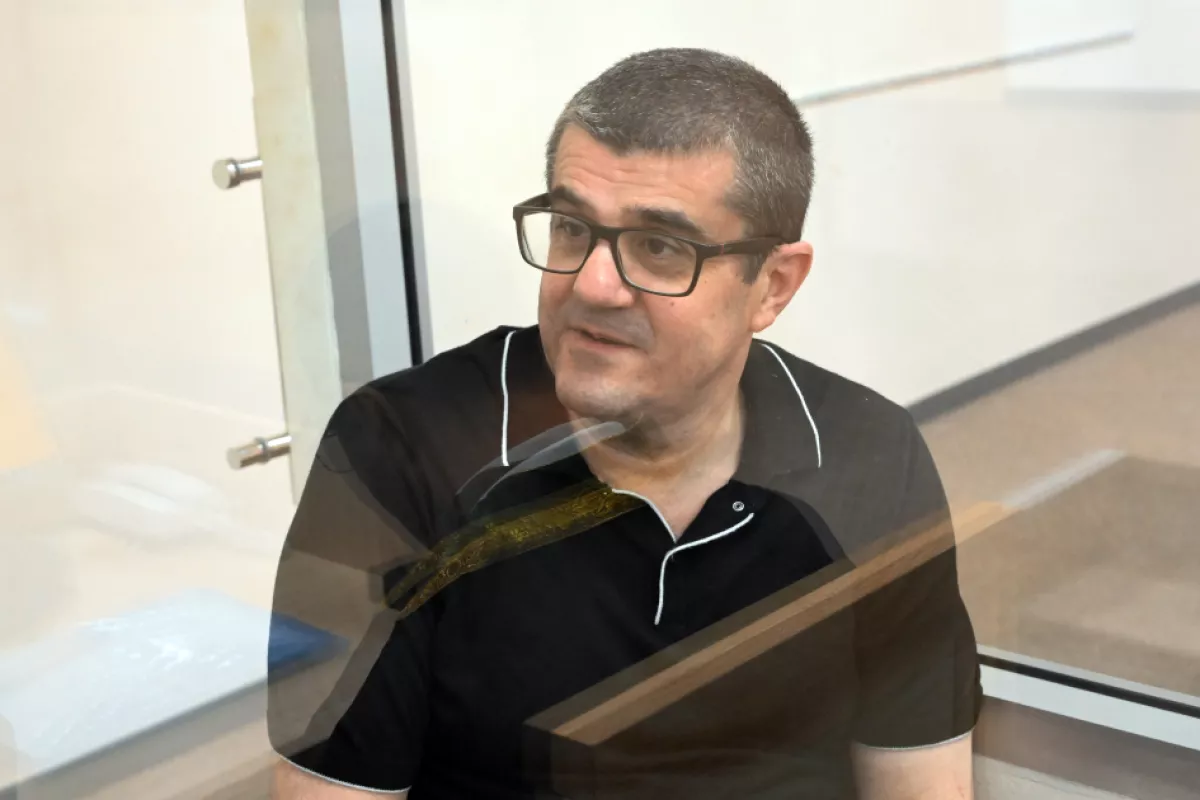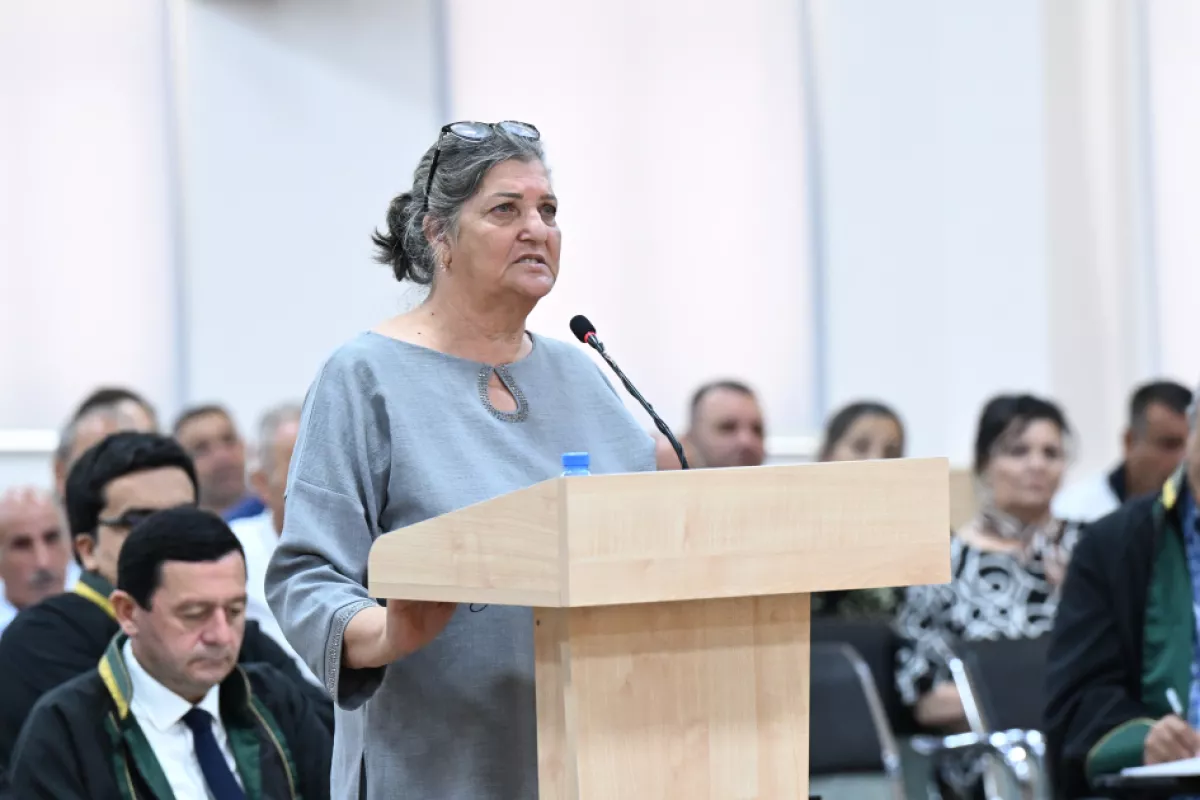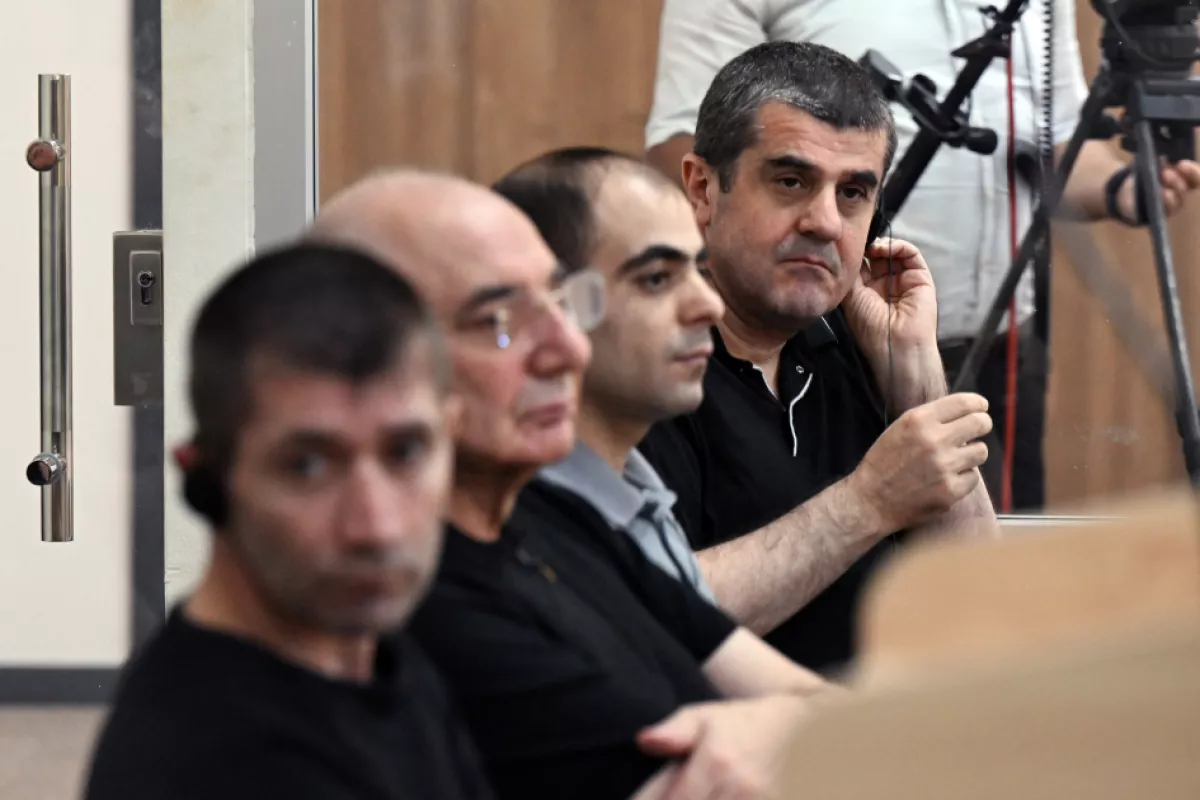Baku court hears heart-wrenching testimonies of Armenian war crimes victims PHOTO
On August 25, the open court session continued on the criminal cases against citizens of the Republic of Armenia — Araik Harutyunyan, Arkadi Ghukasyan, Bako Sahakyan, Davit Ishkhanyan, David Babayan, Levon Mnatsakanyan, and others — accused of committing crimes against peace and humanity, war crimes including the planning and waging of aggressive war, genocide, violations of the laws and customs of war, as well as terrorism, financing of terrorism, violent seizure and retention of power, and numerous other crimes committed by Armenia against Azerbaijan.
At the hearing held in the Baku Military Court, presided over by Judge Zeynal Aghayev with Judges Jamal Ramazanov and Anar Rzayev (reserve judge – Gunel Samadova), each of the defendants was provided with an interpreter in the language they speak, as well as defence lawyers, Caliber.Az reports, citing local media.
The court session was attended by the accused individuals, their defense lawyers, some of the victims, their legal successors and representatives, as well as the prosecutors representing the state prosecution.
Judge Zeynal Aghayev introduced to the victims participating in the process for the first time the panel of judges, the prosecutors representing the state prosecution, interpreters, and other participants, and explained to them their rights and obligations under the law.
The testimonies of the victims were then heard.
Victim Sahib Asgarov testified that as a result of attacks by the Armenian armed forces in 1993, he was forced to leave Kalbajar. He noted that during the assaults on the city, some of his relatives were killed and others wounded. Responding to a question from Nasir Bayramov, head of the Department for the Protection of State Prosecution at the Prosecutor General’s Office, the victim stressed that the residents of Kalbajar fleeing the city were not even provided with a humanitarian corridor.
The victim reported witnessing the tragedy in the “Tunnel” in Kalbajar. In his testimony, he noted that the opposing side included mercenaries who had arrived from abroad.
“They destroyed our cemeteries and seized our cultural, historical, and religious monuments,” added S. Asgarov.
Responding to a question from state prosecutor Tarana Mamedova, victim Sabir Guliyev emphasised that he is a resident of the village of Goytala in Shusha. Guliyev stated that in early May 1992, the city was occupied by Armenian armed forces, forcing him into the fate of a displaced person: “My cousins, Tahir and Rafael Guliyev, were killed. Tahir Guliyev’s body has still not been found. During the occupation of Shusha, the opposing forces did not provide a humanitarian corridor for the civilian population.”
“While passing through Lachin, we came under artillery fire from the direction of Goris. An elderly woman was killed there,” the victim said, adding that after the liberation of their lands from occupation, he visited his father’s grave and saw that it had been destroyed, with some tombstones removed.
“They took away our property and belongings. Our villages were destroyed, residents could not find their homes. Our lands were reduced to a catastrophic state…,” the victim emphasised.
When asked by Senior Assistant to the Prosecutor General Vusal Aliyev, victim Almaz Aghayeva stated that she had lived with her family in a house on 5th Parallel Street in Khankendi. In September 1988, unable to withstand the pressure placed upon them, they moved to Shusha.
“I worked at the Karabakh Silk Factory. Armenians were brought to Khankendi, and Azerbaijanis were beaten. Unable to endure such pressure, we managed with great difficulty to reach the city of Shusha via forest paths. In 1992, we were forced to leave Shusha. My neighbor, Zohra Guliyeva, was killed there. My father was wounded. We took shelter in a basement because of artillery fire,” the victim recounted.
Victim Sevda Hasanova testified that in August 1993, she was forced to leave Fizuli as a result of attacks by the Armenian armed forces.
Answering a question from state prosecutor Fuad Musayev, S. Hasanova said: “They made no distinction between civilians and military personnel. Our neighbor’s yard was shelled by Grad launchers, and a young woman’s body was torn apart.”
She emphasized that upon returning to the liberated territories, she found the graves in the cemeteries destroyed.
Answering a question from Assistant to the Prosecutor General for Special Assignments Tugay Ragimli, victim Araz Jebrailov reported that on September 19, 2023, they were ambushed in a forest near Khankendi, and he was wounded during the attack.
Victim Nadir Mamedov stated in his testimony that he became a displaced person from Zangilan and was injured during attacks by Armenian armed forces in late October 1993: “No humanitarian corridor was provided for the civilian population to leave the area, and residents were subjected to shelling. We survived by crossing the Araz River.”
Showing photographs of houses destroyed by Armenian armed forces, he said that they were able to live in a house built in 1991 for only two years: “We demand compensation for the damage caused to our homes, mosques, and cemeteries. Graves in the cemeteries were also destroyed.”
Answering questions from state prosecutor Vusal Abdullayev, victim Nariman Aleskerov testified that he became a displaced person from Zangilan as a result of attacks by Armenian armed forces. He noted that during the capture of Zangilan, postman Bahman was killed in his yard by artillery fire. “Within a short period, they occupied several villages, and the population was forced to flee barefoot. They killed the family of my uncle Veli. My uncle Ismail and his mentally ill son were killed by being tied to a tank and dragged along the ground. No humanitarian corridor was provided to the population. The villages were set on fire immediately after capture.”
He emphasised that upon returning to Zangilan after its liberation, he saw that not a single building remained standing in the villages, and the cemeteries were destroyed.
The victims also answered questions from the accused, their defence lawyers, and representatives of other victims.
The court then read the testimony of the accused, Arkadi Ghukasyan, in the criminal case.
The trial will continue on August 28.
Fifteen defendants of Armenian origin are accused in the criminal case concerning numerous crimes committed during the aggressive war waged by the Armenian state - including the aforementioned criminal association - on the territory of Azerbaijan, in violation of domestic and international legal norms. These crimes were committed for the purpose of military aggression against Azerbaijan and were carried out under the direct leadership and participation of the Armenian state, officials of its state institutions, its armed forces, and illegal armed formations, through their written and verbal orders, instructions, and guidelines; material, technical, and personnel support; centralized management; as well as under strict control and under the leadership and direct or indirect participation of Robert Sedraki Kocharyan, Serzh Azati Sargsyan, Vazgen Mikaeli Manukyan, Vazgen Zaveni Sargsyan, Samvel Andraniki Babayan, Vitali Mikaeli Balasanyan, Zori Hayki Balayan, Seyran Musheghi Ohanyan, Arshavir Surenovich Garamyan, Monte Charles Melkonyan, and others.
The following individuals - Arayik Vladimiri Harutyunyan, Arkadi Arshaviri Ghukasyan, Bako Sahaki Sahakyan, Davit Rubeni Ishkhanyan, David Azatini Manukyan, David Klimi Babayan, Levon Henrikovich Mnatsakanyan, Vasili Ivani Beglaryan, Erik Roberti Ghazaryan, Davit Nelsoni Allahverdiyan, Gurgen Homeri Stepanyan, Levon Romiki Balayan, Madat Arakelovich Babayan, Garik Grigori Martirosyan, and Melikset Vladimiri Pashayan - are being charged under the following articles of the Criminal Code of the Republic of Azerbaijan: Article 100 (planning, preparing, initiating, and waging a war of aggression); Article 102 (attacking persons or organizations enjoying international protection); Article 103 (genocide); Article 105 (extermination of the population); Article 106 (enslavement); Article 107 (deportation or forced displacement of population); Article 109 (persecution); Article 110 (enforced disappearance of persons); Article 112 (deprivation of liberty contrary to international law); Article 113 (torture); Article 114 (mercenary service); Article 115 (violation of the laws and customs of warfare); Article 116 (violation of international humanitarian law during armed conflict); Article 118 (military robbery); Article 120 (intentional murder); Article 192 (illegal entrepreneurship); Article 214 (terrorism); Article 214-1 (financing terrorism); Article 218 (creation of a criminal organization); Article 228 (illegal acquisition, transfer, sale, storage, transportation, and possession of weapons, ammunition, explosives, and devices); Article 270-1 (acts threatening aviation security); Article 277 (assassination of a state official or public figure); Article 278 (forcible seizure and retention of power, forcible change of the constitutional structure of the state); Article 279 (creation of armed groups not provided for by law); and additional articles.
By Khagan Isayev




